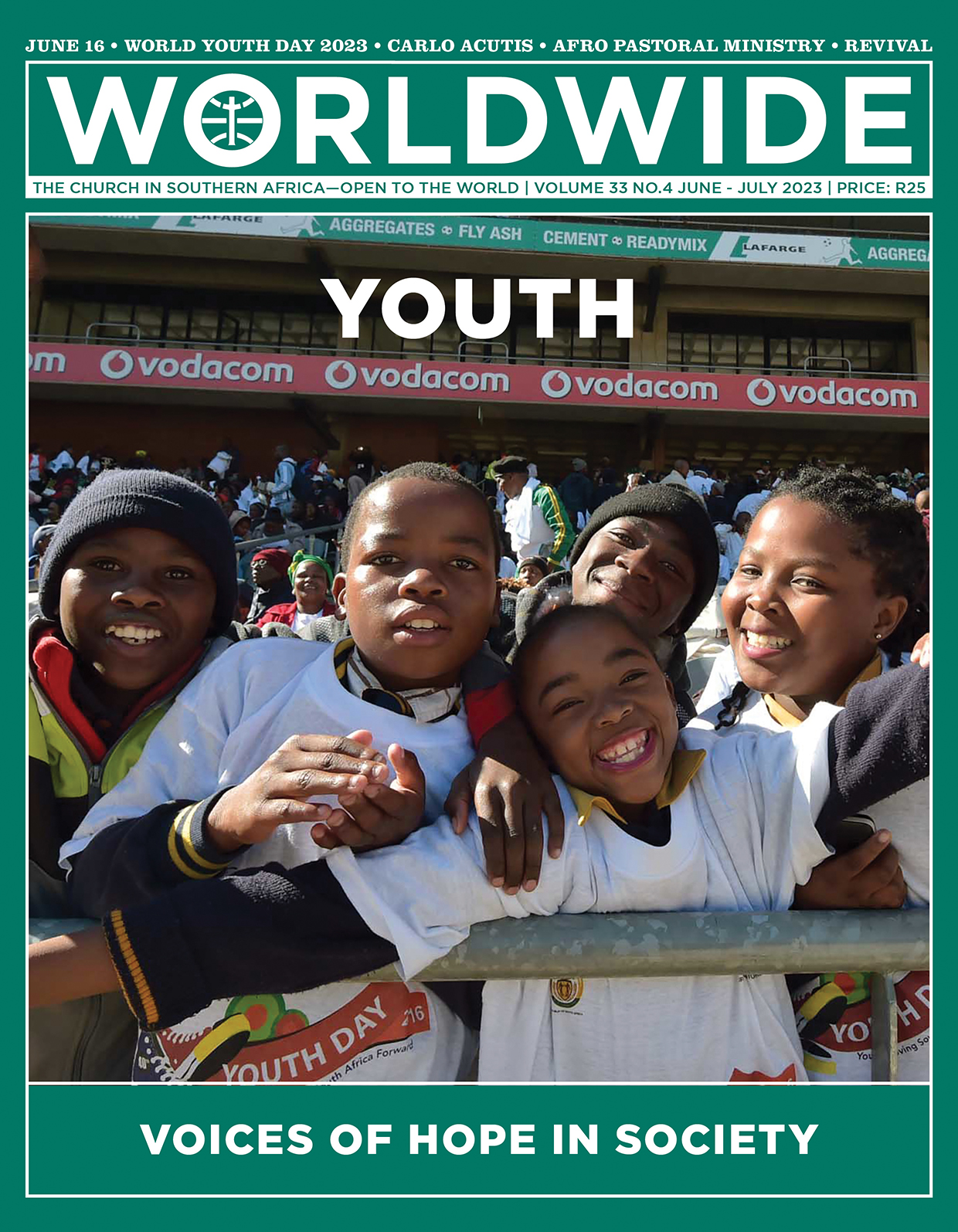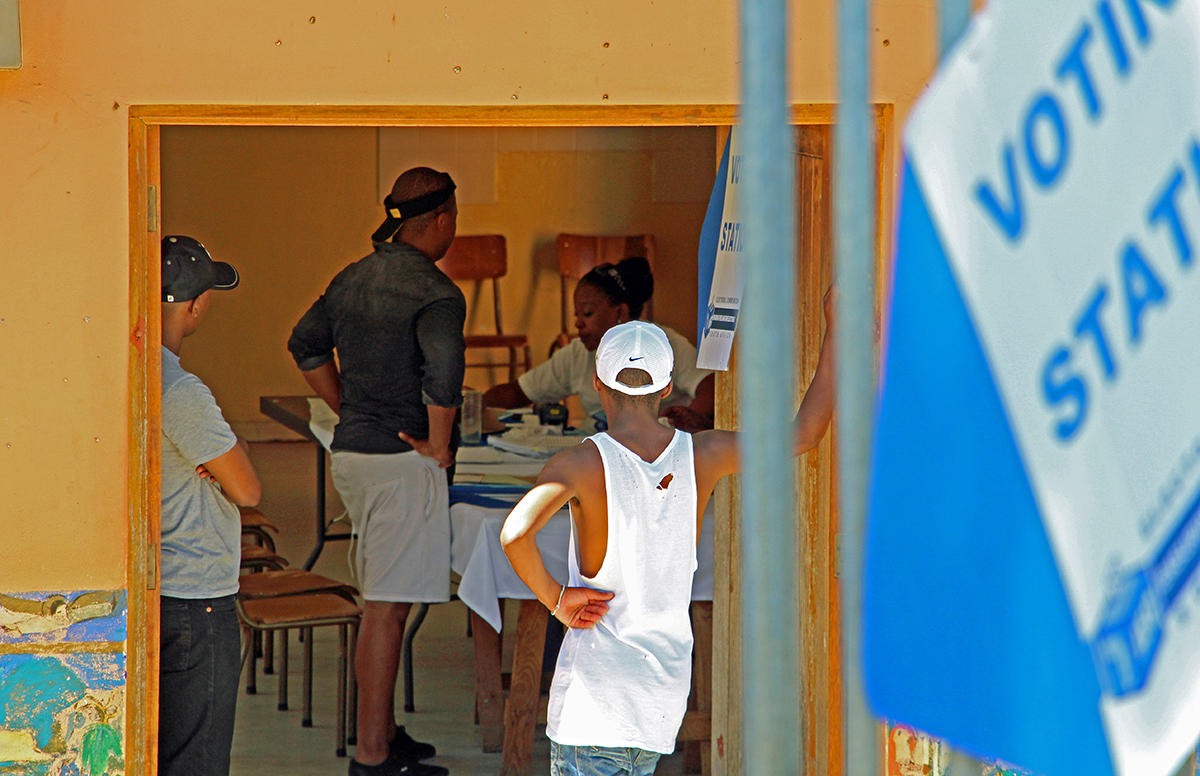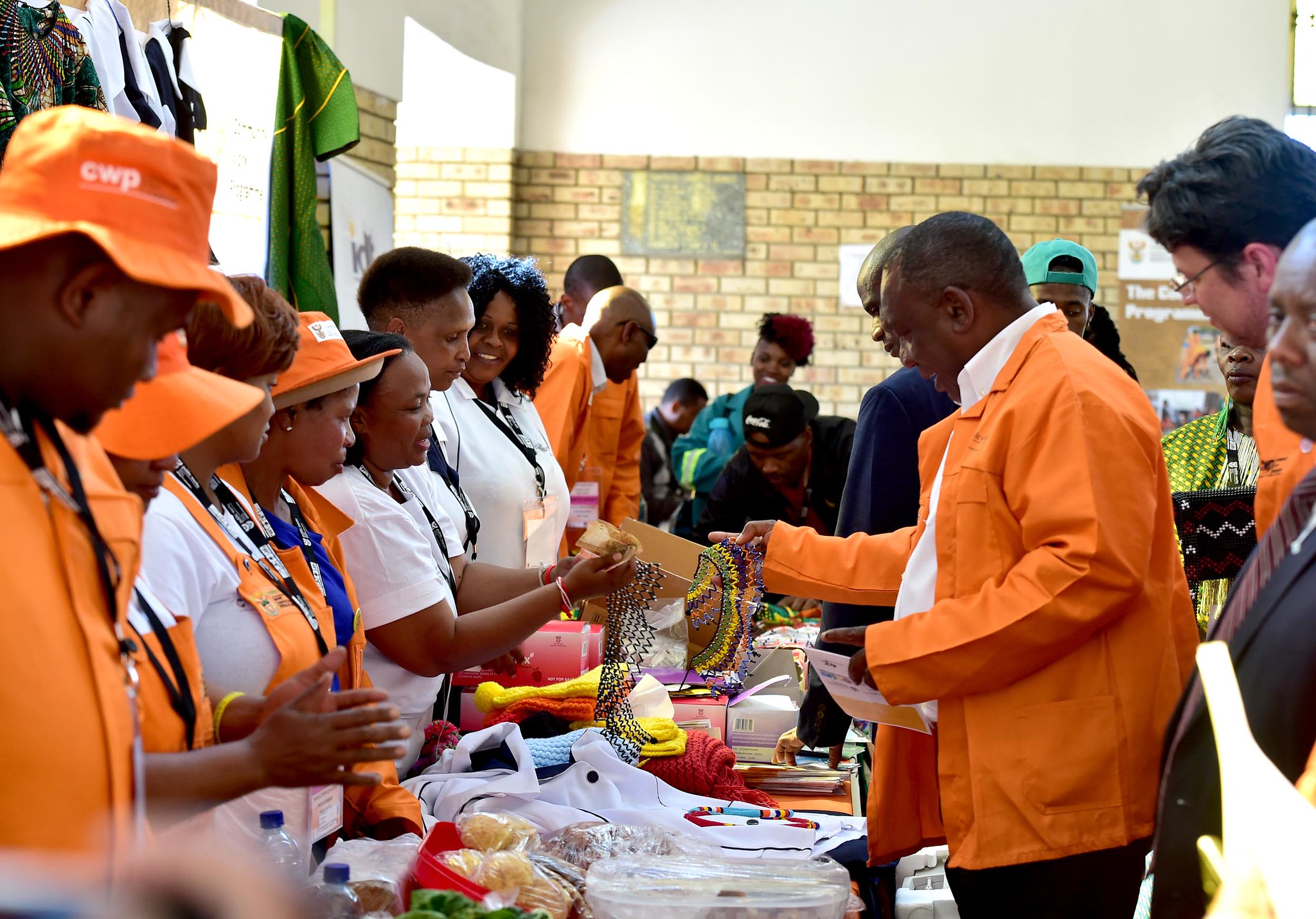
YOUTH: VOICES OF HOPE IN SOCIETY
The front cover image shows youngsters commemorating Youth Day at Orlando Stadium in Soweto, the same location where an uprising against the use of Afrikaans as a vehicular language of education took place in 1976.
Some might see June 16 only as a public holiday, nevertheless, gratitude goes to those who strived on behalf of the youth for an inclusive and better education. Many youths today still face great challenges and need strong support in order to receive an integral formation which prepares them for a bright future.
INSIGHTS • YOUTH VOTE

Why are so many youths not voting?
BY Mike Pothier | Programme Manager, SACBC Parliamentary Liaison Office
IN A little over a year, in the 2024 South African national and provincial elections, we will have the chance to determine South Africa’s political future. Elections are very much about the future. You can use your vote to influence the way the country is run in the years to come.
The younger you are the more important it is that you register as a voter, that you think carefully about your vote, and that you make every effort to cast your ballot on election day. Young people will be living with the outcome of electoral choices for a much longer time than their parents and grandparents will be.
At the time of the Brexit referendum in Britain there was a strong argument that, because of the long-term ramifications of leaving the European Union, young people’s votes should carry more weight than those of the elderly. Instead, older people turned out in large numbers to vote, and many of them voted to leave the EU. Many 20-30 year-olds didn’t vote and now they are going to live with the consequences for decades to come.
We are facing a similar problem in South Africa. At the time of our last national and provincial elections in 2019, it was estimated that around 4 million citizens between 20 – 29 years had not registered to vote. In the 2021 local government elections, 90% of 18-19-year-olds failed to register, and there is little sign that they have been registering since then and the turnout of young voters next year is likely to be lower than ever.
In a country where democracy was achieved only after a long struggle, and at great cost, this seems puzzling. Why are our young people apparently not interested in helping to secure a better future for themselves?
It’s a complex question and one with many possible answers. We must be careful not to generalise across the board about young people, most of whom do indeed care deeply about their, and the country’s, future; we must also not make the mistake of thinking that South Africa is alone in this respect—many democracies are experiencing a similar trend. Nevertheless, we can certainly offer some reasons.
One is education. Even though schools have the subject of Life Orientation, it seems that civic education, in which children are taught about their rights and responsibilities as citizens, is generally very poorly handled. Teachers are often not properly trained themselves, and some may shy away from talking about what they see as ‘political’ matters in the classroom. Therefore, many children leave school with little idea of the importance of voting and of responsive citizenship.
Another reason lies in the general decline in trust in public institutions. This is not only a South African phenomenon—younger people in established democracies have less faith than their elders in governments, political parties and parliaments. This is linked to the much wider access people now have to alternative sources of information and opinion via social media and other technologies. Unfortunately, but perhaps understandably, this results in increased scepticism and cynicism about long-established political processes and institutions. (The same phenomenon is at work, it seems, in the decline in formal religious practice among young people in the developed world.)
A factor that might be specifically applicable to South Africa is that you would have to be approaching 40 years of age in order to have any personal memory of the pre-democratic, apartheid, era. The great prize that was won in 1994, the right to vote regardless of race, clearly means less to people who were not even born then than it does to older generations.
Whatever the reasons, this is a serious problem for our country’s political well-being. For all its faults there is no better system than democracy, and it cannot work without proper electoral participation. People of all ages, but young people especially, must be encouraged to put aside their mistrust and cynicism and use the opportunities that democratic elections give them to make a better future than the past.
Between now and the 2024 elections there will be at least two registration weekends organised by the Electoral Commission. Let’s make sure we do whatever we can to encourage our young people to register and then vote.

